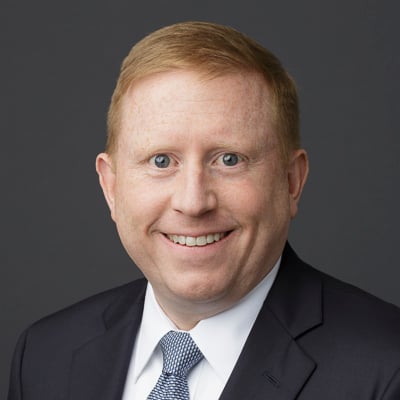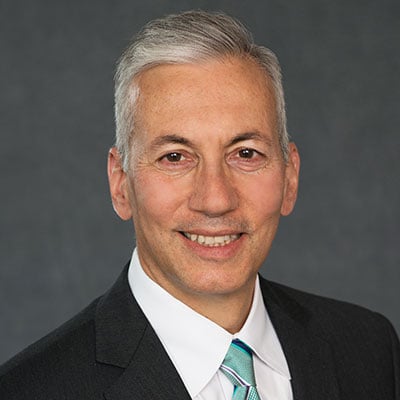Tronox Says Ex-Kerr-McGee General Counsel Knew Of Fraud
On the third trial day of Tronox Inc.'s $25 billion suit alleging former parent Kerr-McGee Corp.'s 2006 spinoff doomed the pigment maker, Tronox's attorney sought Thursday to demonstrate that an ex-Kerr-McGee in-house attorney was aware of a fraudulent plan to avoid environmental liabilities.
In a hearing before U.S. Bankruptcy Judge Allan L. Gropper, Andrew A. Kassof of Kirkland & Ellis LLP questioned Roger Addison, former in-house counsel at Kerr-McGee and later at the subsidiary, about the developments that allegedly led to Tronox's 2009 Chapter 11 filing.
Those preparations included the shuffling of Kerr-McGee's valuable oil and gas assets to an entity known as New Kerr-McGee, leaving behind tort and environmental liabilities related to decades of contamination from its chemicals business; the completion of a 2005 initial public offering of the Tronox arm, which was saddled with those liabilities; and a 2006 spinoff of the company, which had always been "doomed to fail," according to the plaintiff.
"'The whole purpose of creating Tronox and the spin and sale' was to 'separate out the legacy liabilities and leave them behind with Tronox,'" Addison said, according to a pretrial brief submitted by the plaintiff.
Pursuing the claims against Kerr-McGee are the Anadarko Litigation Trust, as Tronox's successor, and the U.S. government, which was the largest creditor in Tronox's bankruptcy before it emerged in 2001 thanks to a global deal under which any recovery from the suit will send 88 percent to the U.S. Environmental Protection Agency and 12 percent to tort claimants.
Tronox filed the suit in 2009 against its former parent and Anadarko Petroleum Corp., the ultimate purchaser of Kerr-McGee, alleging the two orchestrated a fraudulent scheme to separate New Kerr-McGee from the legacy liabilities — tort, environmental and retiree — that they perceived as a hindrance to Kerr-McGee's ability to take advantage of a "red-hot" mergers and acquisitions market and sell itself. On May 8, Judge Gropper ruled that Anadarko couldn't be targeted for a fraudulent transfer because it has kept Kerr-McGee as an isolated business unit.
Once Tronox was spun off, Anadarko stepped in and bought Kerr-McGee for $19 billion. Tronox was in turn left with the legacy liabilities, which its pigment business wasn't able to support, according to the suit.
Tronox alleges Kerr-McGee's behavior leading up to the spinoff moves was evidence of its fraudulent intent. That is, it says, by focusing on rapidly acquiring enough new businesses to give its chemicals unit the "critical mass" it needed to survive as a standalone company, racking up significant liabilities from unhealthy businesses that were purposely separated from the healthy assets that would ultimately stay with New Kerr-McGee.
Addison's testimony followed two days of questioning of former Kerr-McGee CEO Luke Corbett. It focused largely on the planning behind the spinoff, with Kassof seeking to establish that "the intent of the Tronox spinoff was to separate the legacy liabilities from the oil and gas assets so those assets could not be used to satisfy creditor claims."
The testimony involved mention of the so-called inner circle at Kerr-McGee, consisting of Corbett, Chief Financial Officer Robert Wohleber and general counsel Greg Pilcher, who Tronox says were the architects of the plan.
"The 'principal deal goal,' based on what Addison knew and understood from inner circle member Pilcher, was not only to 'insulate the oil and gas assets from the legacy liabilities,' but also to 'get money as a result of the sale and spin of the chemical business,'" Tronox's pretrial brief said, citing Addison's deposition.
Counsel for Kerr-McGee has sought to paint the transactions at issue as legal maneuvers that were designed to create two viable organizations that could survive and thrive on their own.
Both arms of the company — its exploration and production business and its chemical business — were treated in good faith as viable entities that Kerr-McGee had a long history of growing and believed in, the defense has argued.
Further, in order for the plaintiffs' arguments to be true, there would have to be a long history of hundreds of people, including law firms and outside advisers, being either crooked or duped in the process of Kerr-McGee purportedly carrying out its scheme, according to the defense.
Rather, Tronox's failure was the result of the global economic decline that took place just as it became a standalone company, the defense maintains.
"It was an unforeseeable economic collapse, not fraud or environmental problems, that doomed Tronox to fail," Kerr-McGee attorney Thomas R. Lotterman of Bingham McCutchen LLP said Tuesday in opening arguments in the case.
In January, Judge Gropper refused to cap damages in the suit, which seeks $15 billion over the allegedly fraudulent transfer plus $10 billion in accrued interest, saying there was no legal basis for doing so.
The trial is scheduled to take place over the next several months before Judge Gropper.
The Anadarko Litigation Trust is represented by David J. Zott, Andrew A. Kassof, David H. DeCelles and Jeffrey J. Zeiger of Kirkland & Ellis LLP.
The defendants are represented by Lydia Protopapas, Richard A. Rothman, Melanie Gray, Jason W. Billeck and Bruce S. Meyer of Weil Gotshal & Manges LLP, James J. Dragna, Thomas R. Lotterman and Duke K. McCall III of Bingham McCutchen LLP and Kenneth N. Klee and David M. Stern of Klee Tuchin Bogdanoff & Stern LLP.
The case is Tronox Inc. v. Anadarko Petroleum Corp. et al., case number 1:09-ap-01198, in the U.S. Bankruptcy Court for the Southern District of New York.
REPRINTED WITH PERMISSION FROM THE MAY 17, 2012 EDITION OF LAW360 © 2012 PORTFOLIO MEDIA INC. ALL RIGHTS RESERVED. FURTHER DUPLICATION WITHOUT PERMISSION IS PROHIBITED




